Rescue & Releases
If you have sighted a Koala we want to know about it!
Please call us on 0401 080 333.
Rescue:
Rescuing may be required if a koala has been hit by a car, had an interaction with a dog, shows signs of disease, orphaned, or is in a dangerous location. We encourage ALL koala sightings to be reported so that we can do a visual health check.
Koalas suffer from a range of diseases and the sooner a sick koala can receive veterinary treatment the better its chances of survival. Sighting data can also help provide valuable information for the conservation of the Moreton Bay koala population.
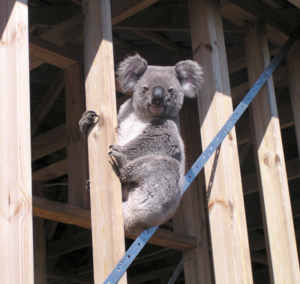
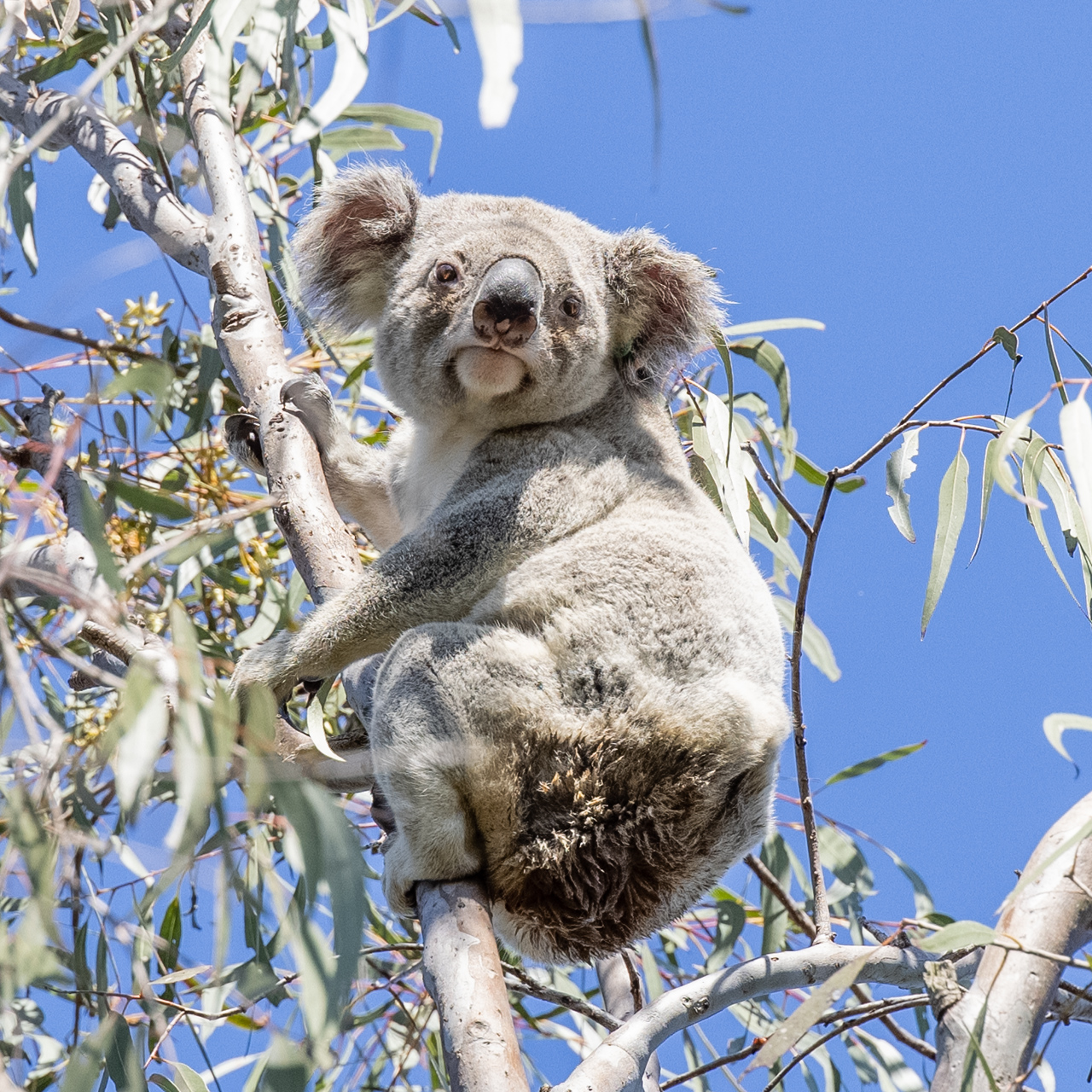
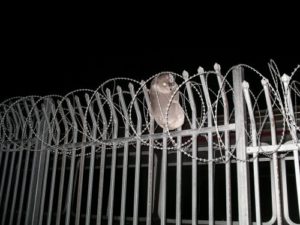
When our rescuer receives a call they will ask a few questions to get the right picture and will act upon that information.
Questions we may ask include things like:
- Is the koala injured?
- Is the koala sick?
- Is the koala orphaned?
- Is the caller able/willing to stay until we arrive?
- If they can’t stay, can they send a pin drop or mark the tree?
- Is the koala on the ground?
- Is it on a road?
- Is it on someone’s property?
- Are we allowed access?
- Are there any unleashed dogs?
- Is it in a tree?
- How high is it?
- Are there any power lines?
We need to be prepared for all koala rescue situations to have the best outcome for the sick, injured or orphaned koala. We might need to call other helpers, e.g. Police, Fire Brigade, Energex, Cherry pickers, Tree climbers – luckily they are more than happy to help out if they can.
Once we have secured the koala(s) in a cage, we are on our way to one of the wildlife hospitals who provide a 24-hour service with specialized wildlife vets.
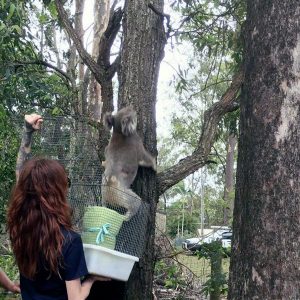
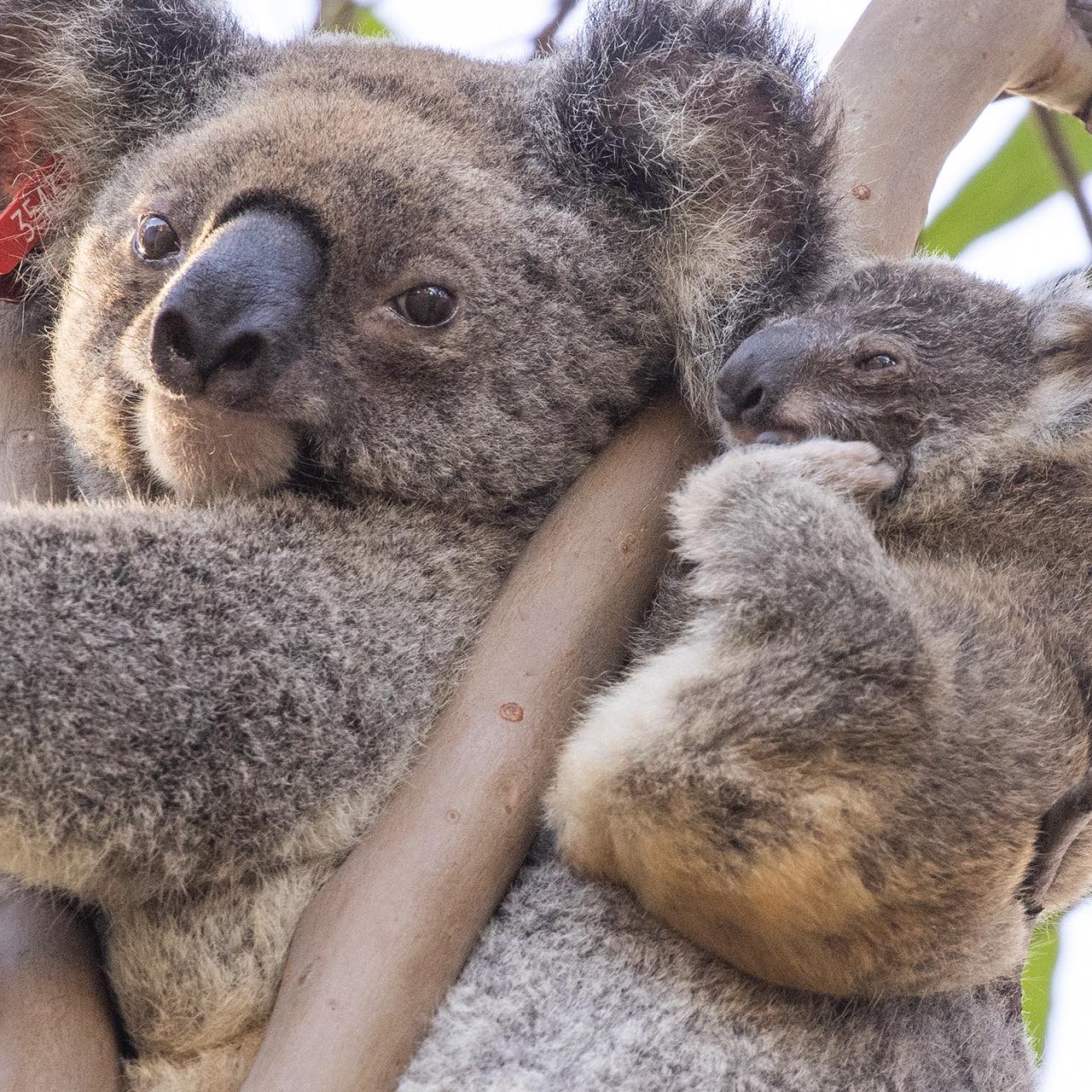
Hospital:
Upon arrival at the wildlife hospital, the koala will have a full health assessment by a specialised vet. Pain relief is always the first option and if necessary surgery or treatment. Sometimes the injuries are so bad or the disease is too advanced there is no alternative other than to put the animal out of its misery. Euthanasia is a difficult decision, and many factors are taken into consideration, but the welfare of the animal is always paramount.
Where we can, we try to always give feedback to the caller, even if the outcome is not a good one. We are forever grateful to the members of public who report sick and injured animals, as even when euthanasia is the only option, we can prevent the animal from suffering dehydration, starvation, or a long and agonising death.
Release:
If the animal responds well to treatment they are eventually given the all clear to be released back into the wild after rehabilitation. We usually let the caller know about this wonderful outcome, and if possible, they can come and witness the release.
For our rescuers, releases are always a goose bump moment, as it gives us a balance for the ones that are not so lucky and is a confirmation that together we can make a difference for each individual koala.
